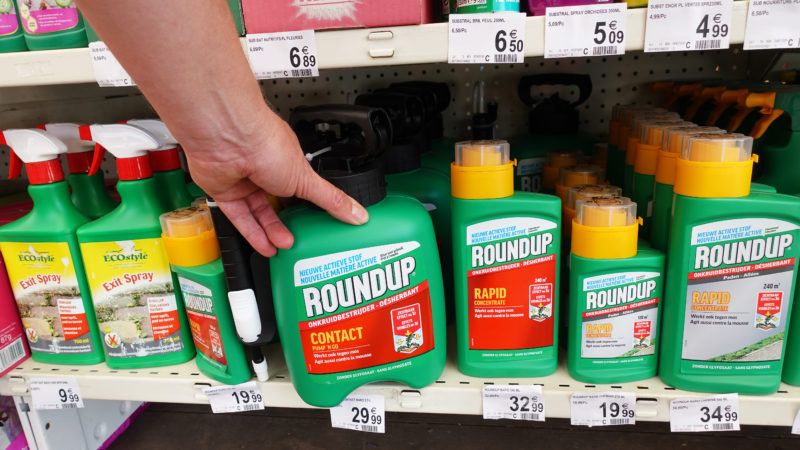Bayer Surrenders to Trial-Lawyer Extortion Over Bogus Glyphosate Weedkiller Cancer Claims
The chemical company has agreed to create a $10 billion settlement fund

Bayer, the German pesticide and seed company, has agreed to establish a $10 billion fund that aims to resolve current litigation and address potential future litigation over its Roundup-branded glyphosate weedkiller. The company simultaneously states that "it is important to emphasize that these resolutions contain no admission of liability or wrongdoing." And it adds that "the extensive body of science indicates that Roundup™ does not cause cancer, and therefore, is not responsible for the illnesses alleged in this litigation." In other words, the company is giving in to trial-lawyer extortion.
The company is merely stating scientific facts that decades of research have shown that glyphosate is not a carcinogen when used as directed. This is the scientific conclusion of every safety and regulatory agency that has evaluated the compound over the past 30 years, including the U.S. Environmental Protection Agency, the European Food Safety Authority, the German Federal Institute for Risk Assessment, and the Food and Agriculture Organization.
So what is going on? The trial lawyers are the willing (and highly compensated) instruments of the longstanding activist campaign against modern biotech crops spearheaded by groups such as the Environmental Defense Fund, Greenpeace, and the Union of Concerned Scientists. These activists hate the fact that the popular herbicide is used by millions of farmers around the world to clear weeds out of their fields planted in commodity crops genetically enhanced to resist it.
Scandalously, an activist scientist working with the International Agency for Research on Cancer (IARC) managed to get the agency to classify glyphosate as a "probable human carcinogen." Two weeks after publication of the IARC report, the scientist Christopher Portier cashed in on his activism by signing a lucrative contract to act as a litigation consultant with law firms engaged in bringing lawsuits first against Monsanto and later Bayer alleging that exposure to Roundup had caused their clients' cancers.
Using bogusly generated claims about glyphosate's carcinogenicity, trial lawyers have managed to bamboozle sympathetic juries into awarding hundreds of millions of dollars to their clients.
"All that this settlement shows is that the relevant science is no match for the combination of sensationalist tort cases, which exploit victims with a rare cancer, and the propaganda of a cynical agency, which appears to have engaged in fraud to find glyphosate a 'probable carcinogen'," observes former Stony Brook University School of Medicine cancer epidemiologist Geoffrey Kabat in an email. "Over a dozen national and international agencies (including the U.S. EPA, Health Canada, and the European Food Safety Authority) have concluded that glyphosate is not a carcinogen and is safe when used as directed. Nevertheless, Bayer has clearly decided that reasoned examination of the facts cannot overcome the power of a narrative that reinforces well-worn fears, rewards greedy lawyers, and only harms farmers and the poor."
Bottom line: Activist-generated scientifically bogus extortion worked.


Show Comments (43)